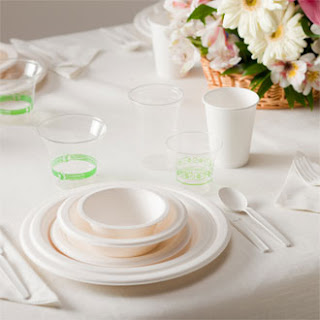How can Disposable Gloves Help you to Maintain Hygiene?
Disposable gloves are practically used everywhere. You see them anywhere including hospitals, in a doctor’s cabin, clinics, restaurants, bakehouses, hair & beauty salons, and everywhere else that workers need a clean and tidy work environment. These inexpensive hand protection tools can help you to maintain hygiene and keep healthy.
The disposable gloves might get soiled quickly, but they’re very easy to replace. There’s always a new pair waiting, and they don’t need laundering.
Disposable gloves are the best option if the workers need a protective barrier that moves easily but don’t require a high level of cut protection.
Here are four ways that disposable gloves become an indispensable option
- Prevents Cross-Contamination:
Cross-contamination is a regular risk for a number of workers especially, for those of you who work in the food processing and preparation industries. The bacteria can spread very quickly. It can happen when you handle one substance and your gloves pick up its residue, and then you touch something else.
In a lab, it can destroy research and render samples unusable. Disposable gloves help prevent cross-contamination from occurring in both an inexpensive and effective manner. It will let you change hand protection quickly and easily when moving from one material to the next. This ensures that everything from your dinner to blood screenings stays clean.
- Prevents Pathogens From Spreading:
Hospital, medical, and veterinary office workers come into contact with myriad hazards on a regular basis. Because of this, bacteria and viruses can spread like wildfire — both among workers and the people and pets under the medical facilities’ care.
However, wearing disposable gloves is an effective solution for keeping pathogens spreading from one person to other patients.
While, disposing the used gloves for another instead of just peeling them off and tossing them into the trash, make sure you fold your gloves over onto themselves. That way, all of the harmful substances will stay contained within them.
- Protect You From Unknown Hazards:
Some workers have no idea what they might encounter while dealing with certain substances. This is true for professionals who deal with plants and wildlife.
In their case, a worker might make contact with an amphibian that carries a toxic substance on its skin. Or, the worker may be dealing with certain plants that might cause a severe allergic reaction. For this reason, disposable gloves provide conservationists and wildlife workers with a reliable layer of protection against the molds, toxins, poisons and other dangerous substances that they might encounter outdoors.
The lightweight and comfortable nature of the disposable gloves stand a better chance for these to be easily worn.
- Won’t Wear Out:
The name "Disposable Gloves" says it all. It is thrown to trash after one use, whether it’s after a full shift or after coming into contact with just one substance.
Since they’re not designed for wearing again and again, they don’t have a chance to wear out. If yours is an industry where gloves get a workout, thicker materials help them hold up through the shift.
Of course, all disposable gloves are thin — even if they’re made of a thicker grade material than the average pair. That makes them susceptible to damage. But unlike replacing a costly pair of protective gloves, disposable gloves aren’t very expensive, and there’s usually a ready supply of clean ones available.
- It's Cost Effective:
The Disposable gloves are also very cost-effective. They never need cleaning because a new pair is always handy. And, for people who have allergies, nitrile protects skin without a flare-up.
For all of these reasons, medical situations, food handling, laboratories, certain outdoor settings, and many other applications, disposable gloves are always a safe and healthy option to maintain hygiene.






Disposable Gloves, I think this is an informative post and it is very useful and knowledgeable. therefore, I would like to thank you for the efforts you have made in writing this article.
ReplyDelete